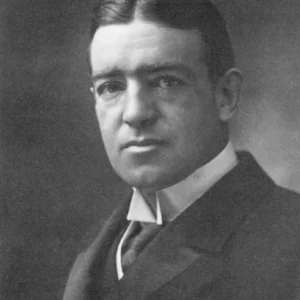Ferdinand Magellan was a Portuguese explorer renowned for leading the first expedition to circumnavigate the globe. His daring journey transformed our understanding of the world’s geography and greatly influenced future explorers.
Early Life and Background
Birth and Family
Ferdinand Magellan was born in 1480 in the small northern Portuguese town of Sabrosa to a noble family. His parents were members of the minor Portuguese nobility, and his father served as mayor. The untimely death of his parents in 1490 left Magellan and his siblings as orphans, and Ferdinand became a page at the royal court in Lisbon.
Education and Early Influences
Court and Maritime Training
At court, Magellan received a robust education, studying cartography, astronomy, and navigation. His early experiences and lessons fostered his fascination with exploration and adventure.
Influences from Notable Explorers
Magellan found inspiration through the tales of renowned explorers like Vasco da Gama and Christopher Columbus, igniting a passion within him to embark on his own voyages. This desire was further fueled by the Age of Discovery, a period marked by extensive overseas exploration.
Career Highlights
Service in the Portuguese Navy
Magellan began his career serving in the Portuguese navy. During the years 1505-1513, he participated in several critical expeditions to the East Indies under the command of famous Portuguese leaders. He honed his navigational skills and gained valuable experience in battle, such as in the Battle of Diu in 1509, which solidified Portuguese dominance in the Indian Ocean.
Dispute with King Manuel I
Despite his accomplishments, Magellan found himself at odds with King Manuel I of Portugal due to disagreements and accusations of illegal trade. This led him to offer his services to Spain, hoping to find a more supportive environment for his ambitions.
Capturing the King’s Attention in Spain
In Spain, King Charles I (later known as Charles V, Holy Roman Emperor) was captivated by Magellan’s bold proposal to find a westward route to the Spice Islands (modern-day Maluku Islands, Indonesia). In 1518, he granted Magellan a fleet and the necessary support to undertake this perilous journey.
Major Works and Contributions
The Landmark Expedition
On September 20, 1519, Magellan set sail from Spain with a fleet of five ships: the Trinidad, San Antonio, Concepción, Santiago, and Victoria. His expedition sought a western sea route to the Spice Islands, bypassing the established routes dominated by the Portuguese.
Discovering the Strait of Magellan
After a grueling journey along the South American coast, Magellan’s fleet discovered a passage now known as the Strait of Magellan on October 21, 1520. This treacherous route allowed them to navigate through the southern tip of South America and enter the Pacific Ocean, which Magellan named due to its calm waters.
The Pacific Crossing and Tragic Fate
Magellan’s fleet endured a long and arduous crossing of the Pacific Ocean, facing scurvy and other challenges. They eventually arrived at the Philippines, where Magellan formed alliances with local leaders. However, on April 27, 1521, during the Battle of Mactan, Magellan was killed, ending his remarkable life but not his groundbreaking voyage.
Completing the Circumnavigation
Despite Magellan’s death, his expedition continued under the command of Juan Sebastián Elcano. On September 6, 1522, the remaining ship, the Victoria, successfully returned to Spain, completing the first circumnavigation of the globe. This monumental achievement validated Magellan’s vision and solidified his place in history.
Personal Struggles and Triumphs
Overcoming Adversity
Throughout his journey, Magellan faced numerous personal struggles, from navigating hostile territories to dealing with mutiny within his fleet. He displayed remarkable resilience and leadership, guiding his men through immense hardships with unwavering determination and courage.
Legacy and Influence on Exploration
Ferdinand Magellan’s expedition had a profound impact on the world’s understanding of geography. He proved that the Earth was round and much larger than previously thought. His journey paved the way for future exploration and inspired countless adventurers to push the boundaries of human knowledge.
Legacy and Influence
Influence on Future Exploration
Ferdinand Magellan’s expedition reshaped global trade routes and expanded Europe’s knowledge of the world. His discovery of the Strait of Magellan provided a new maritime passage between the Atlantic and Pacific Oceans, facilitating future explorations and trade.
Inspiration for Explorers
Magellan’s daring voyage inspired future generations of explorers, including Sir Francis Drake and Captain James Cook, who sought to build on his legacy by exploring new territories and further expanding the known world.
Recognition and Honors
Honors During His Lifetime
Though Magellan faced significant challenges and opposition during his journey, he was honored posthumously for his achievements. His expedition was recognized as one of the greatest maritime undertakings of the Age of Exploration.
Posthumous Recognition
Magellan’s name has been immortalized through countless maps, monuments, and geographical features, such as the Strait of Magellan. His contributions to exploration continue to be celebrated and studied by historians, geographers, and adventurers alike.
Conclusion
Ferdinand Magellan’s life is a testament to the courage and determination required to explore the unknown. His pioneering journey not only circumnavigated the globe but also expanded humanity’s understanding of the world. Magellan’s legacy endures, inspiring new generations to pursue their own adventures and discover the vast wonders of our planet.



